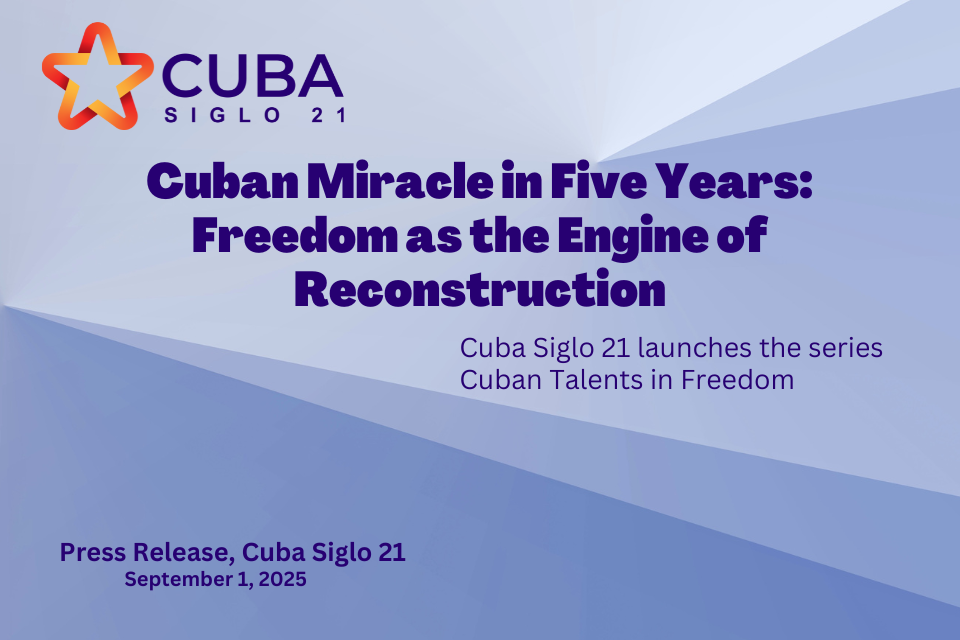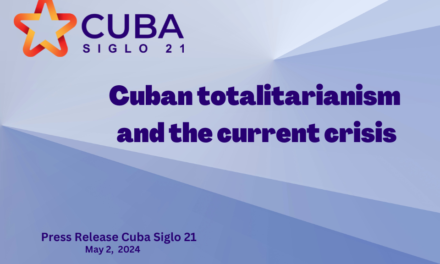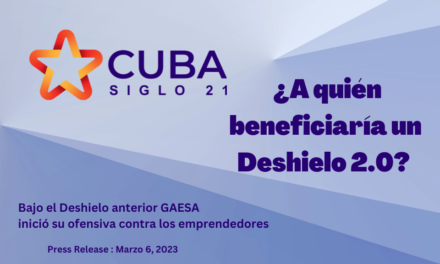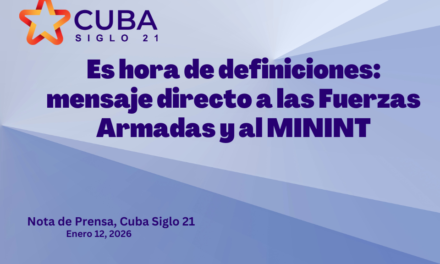Serie Talentos Cubanos en Libertad
Talentos cubanos en Libertad: Remesas de conocimiento para una nueva Cuba
Cuban Talents in Freedom: Remittances of Knowledge for a New Cuba
September 1, 2025— Cuba Siglo 21, a think tank dedicated to promoting a democratic and prosperous Cuba, announces the launch of the series “Cuban Talents in Freedom,” an initiative that highlights the stories of Cuban men and women —different generations and dates of arrival to exile—who, far from the repression and restrictions of the island, have achieved extraordinary achievements in free societies.
For more than six decades, the Cuban regime expelled—directly or indirectly—millions of citizens. Engineers, doctors, artists, entrepreneurs, and athletes had to seek the opportunity denied them in their homeland in other countries. There, in freedom, they not only prospered, but also became engines of development for their host communities.
Seeing photos of the ruined state of Berlin and other western German cities after World War II, few would have thought they could recover in a short period of time. A survey of various experts’ opinions regarding the time it would take to reconstruct Cuba materially yields an estimate of between five and seven years. We believe it will be between three and five. Three factors support this optimism: the island’s natural resources, its geographic proximity to the largest and most dynamic market in the world, and a diaspora of more than two million people, most of whom can count on bank credit lines of varying magnitude, a highly diverse human capital, and networks of institutional and personal contacts abroad who can assist them in their personal projects.
The series Cuban Talents in Freedom documents these trajectories with a clear purpose: to show that human capital is a valuable resource that Cuba will recover when it achieves economic and political freedom. The inaugural installment features the article “Cuban Talents in Freedom: Remittances of Knowledge for a New Cuba.” This is not only about financial remittances, but also about what the director of Cuba Siglo 21, Juan Antonio Blanco, defined as “remittances of knowledge”: knowledge, experiences, values, and networks that the Cuban exile community has accumulated and that will be essential for rebuilding the nation.
Each biography in this series is a tribute to the ingenuity, discipline, and creativity of free Cubans—and at the same time a warning about what the country has lost under a system that stifles individual initiative. The series explores how doctors like Joseph Lamelas or veterinarians as Oriol Specht Anaya, entrepreneurs like Jose manuel Salvat or Irina Vilariño, investors like Armando Codina or Yoel Sardiñas, and artists like Gloria Estefan and Yotuel Romero, have achieved remarkable successes, and how that same talent could decisively contribute to Cuba’s rebirth once the democratic transition arrives.
“When that moment arrives,” affirms Cuba Siglo 21, “the island will not only have the financial capital of exile, but also the accumulated knowledge and experience of its children scattered around the world. That will be the true foundation for national reconstruction.” In the age of digital information and communication, these resources do not require a physical return to the island. Castro’s exiles will be able to act remotely as investors, but also as advisors, teachers, doctors, architects, engineers, and many other professionals. Today we are a transnational people, and soon we will be a transnational society, capable of closely interacting to implement co-development plans across thousands of miles.
With this series, Cuba Siglo 21 join other organizations and independent media in a collective invitation to all of us to reflect on a possible and now close future: a Cuba where talented individuals don’t have to emigrate to grow, but can build a free, prosperous, and democratic society within their homeland.







